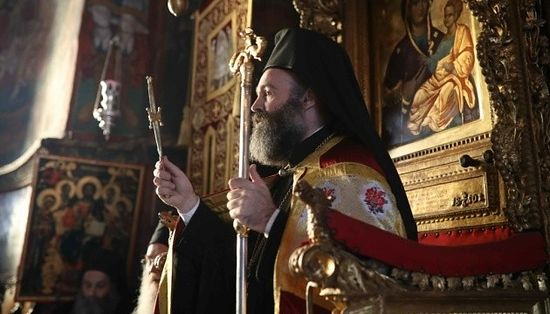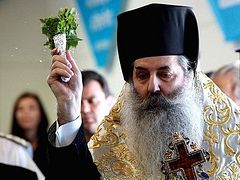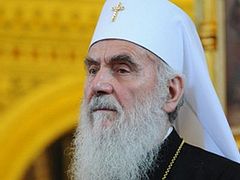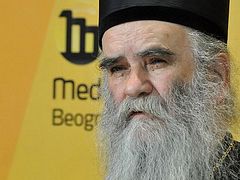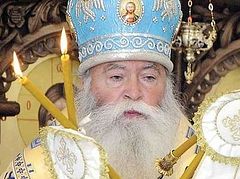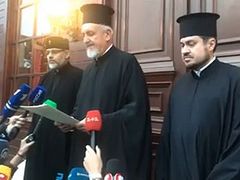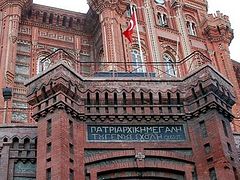Constantinople, October 30, 2018
The consent of the patriarchs of the Local Orthodox Churches to Constantinople’s decision to remove the anathema from Philaret Denisenko and reinstate him as clergy along with Makary Maletich, the heads of Ukraine’s two schismatic confessions, is desirable but not required, according to Constantinople hierarch Bishop Makarios of Christoupolis.
“The consent of the patriarchs of the Local Churches, which is desirable but not necessary, does not affect the completeness and finality of the decisions made by Constantinople. The issue of authority and power is manifested later—at the stage of the reception of the decision,” the bishop said in an article posted on UKRINFORM today.
“Therefore, there are no cases, and if there are they can be counted on one hand, when some Eastern Churches did not accept the decisions of Constantinople on such appeals,” Bp. Makarios added.
Recall that on December 7, 1965, Ecumenical Patriarch Athenagoras unilaterally lifted the anathema against the Catholic Church that had been in effect since 1054 (with the Pope lifting the anathema from his side). No Orthodox Church has accepted this action, and the Catholic Church remains separated from the true Orthodox Church of Christ.
Referring to the 1663 document “Scroll on the Authority of the Tsar and Patriarch” sent to Russian Tsar Alexei Mikhailovich from Constantinople, Bp. Makarios points to the phrase stating that the Patriarch of Constantinople has the right to hear appeals “ει δε και λοιποί συναινέσειεν and Πατριάρχαι” (“if the other Patriarchs agree to participate in the examination”), commenting: “For those who do not know the Greek language, I emphasize that the Greek participle ‘ει δε’ used in this phrase actually expresses the subjunctive mood or a desire. It does not indicate a necessary condition.”
The bishop’s comment comes in response to the Orthodox Encyclopedia Church-Academic Center, which argues that the given phrase does require the consent of the other Orthodox primates. The Center writes,
According to this document, “tomos,” the Patriarch of Constantinople can indeed hear appeals. But his decision acquires legal force only after the approval of all the patriarchs. Thus, consideration of the case should be preceded by a letter from the person disagreeing with the judgment of the council of local bishops to all the patriarchs, and not only to Constantinople.
According to Bp. Makarios,
No appeal of this type is submitted to all the patriarchs of the Local Churches. Thus, the thesis that ‘before consideration of his question, the applicant, not agreeing with the decision of the Local Synod, should appeal to all the patriarchs, and not just to Constantinople,” is historically unfounded, anti-Church, and not canonical. It is obvious that if such an appeal is submitted, the other patriarchs will redirect it to Constantinople, since they cannot resolve such issues according to the canons.
It should be noted that Philaret Denisenko did make his initial appeal in 1992 following his defrocking in the manner described by the Orthodox Encyclopedia Center—to all of the primates of the Local Orthodox Churches, and not to Constantinople alone.
At that time, Patriarch Bartholomew rejected Denisenko’s appeal, noting that the matter was fully within the competence of the Russian Orthodox Church. Following the anathematization of Denisenko in 1997, Pat. Bartholomew again acknowledged Constantinople’s acceptance of the Russian Church’s decision.
Constantinople has not as yet clarified when and how the “exclusive competence” on this issue was transferred from Moscow to Constantinople.
Follow us on Facebook!

